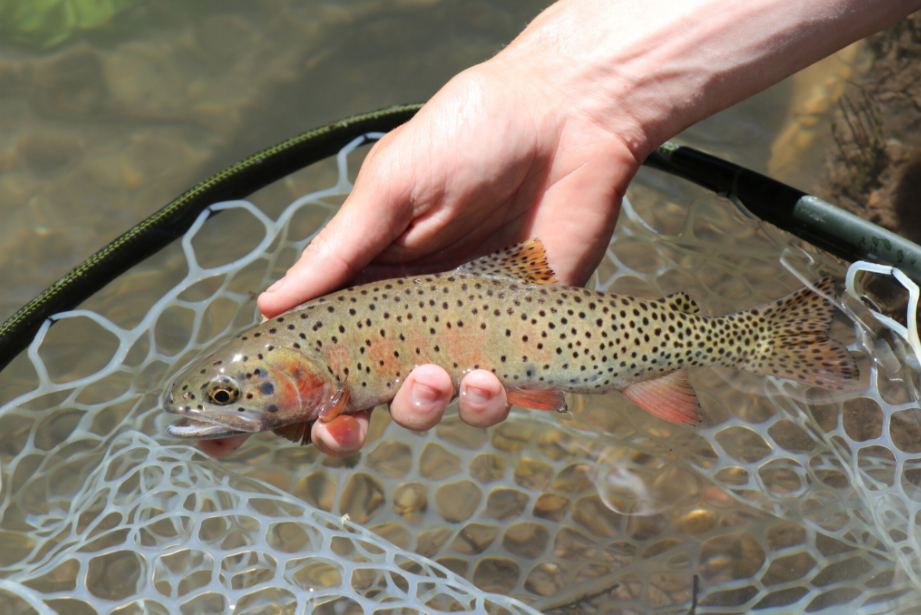Bonneville cutthroat trout
Editor’s note: TU’s Costa Five Rivers Native Odyssey team visited Utah recently on its trip across America.
During our time in Utah, we sought four species of native cutthroat trout. Luckily for us, Utah has just the thing. The Utah Cutthroat Slam is a challenge that costs only $20 and is an adventure in itself.
All money raised through this program helps fund native trout conservation projects across the state of Utah. During this challenge, participants catch four subspecies of cutthroat trout in their native waters, document their capture with a camera, and release them back responsibly. The Utah Cutthroat Slam provides an interesting take on cutthroat trout fishing while tremendously helping TU and the Utah Division of Wildlife Resources. Here’s more information about the slam.
The four subspecies:
Bonneville cutthroat trout:
This is the state fish of Utah. They are native to the Bonneville Basin. They are most often found in northern, central, and western Utah.
Colorado River cutthroat trout:
These trout are native to the Colorado River and its drainages, so they are most often found in eastern and southeastern parts of the state.
Yellowstone cutthroat trout:
Native to only a few tiny streams, these trout inhabit the far northwest portion of Utah.
Bear River cutthroat trout:
Native to the Bear River and its tributaries as well as Bear Lake, this species of cutthroat is found in the northern section of the state.
— Jacob Lacy
Public lands:
Spanning over 2 million total acres, the Uinta-Wasatch-Cache National Forest is one of Utah’s most alluring features.
Located along the densely-populated Wasatch Front in north-central Utah, this eye-catching national forest receives heavy use from locals and tourists alike. Visitors can enjoy exceptional fly fishing, skiing, camping, boating, and mountain biking, among other pursuits.
With so much to do, recreationalists can enjoy this unique national forest throughout the year. Along with the 2 million acres of National Forest, the U.S. Forest Service also manages over half a million acres of wilderness area, which provides further recreational opportunities. The Uinta-Wasatch-Cache National Forest also serves to protect critical watersheds that eventually work their way downstream and supply water to the greater Salt Lake City community. For more information, please check out the U.S. Forest Service’s site for this forest.
— Brett Winchel



